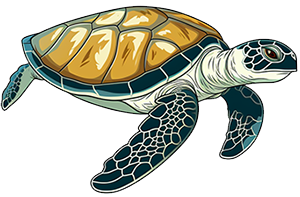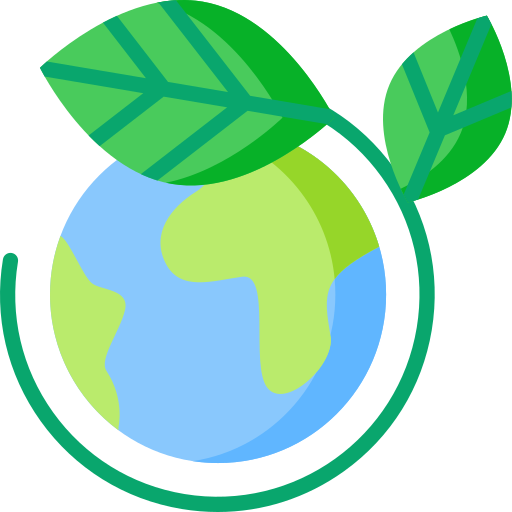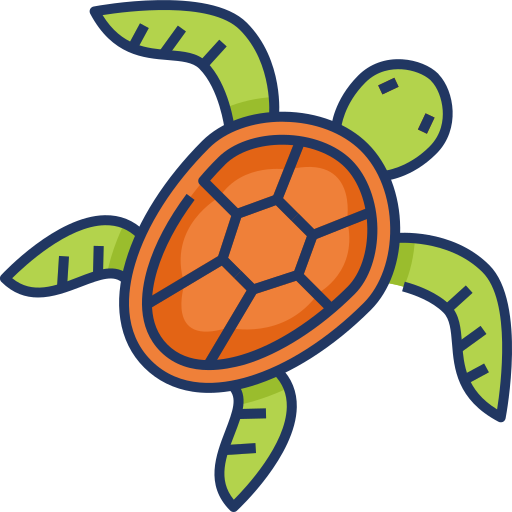Ecology is a large theme, and often not given full coverage in a biology class due to time constraints. Below are some basic lessons on ecology and environmental science.
Looking for lessons and activities related to plants? See Plant Lessons and Teaching Resources
Google Slides and Notes on Ecology
 Populations and Communities
Populations and Communities
Google Slides and Notes on Populations
Estimating Population Size – use bags filled with “animals” to mark and recapture and estimate the population size in the bag
Use Netlogo App to Estimate Population Size – simulation showing how tadpole populations change in different sized ponds, using mark and recapture technique
Analyzing Graphs – Social Hierarchy and Stress – science journal article with graph showing stress levels in group members of baboon social groups.
Case Study – Loggerhead Turtles and Population Models – explore the number of eggs hatched and survivorship
Ecology Case Study – The Wolves of Isle Royale – population decline and reintroduction of wolves
Modeling Survivorship Curves with Bubbles – simulate survival patterns with this fun bubble activity
Predator Prey Graph – graph data on deer and wolf populations (growth curves)
Interpreting a Food Web and Trophic Levels – shows a food web, identify types of consumers
Lesson of the Kaibab – Graph deer population after a catastrophic population decline
Exploring Limiting Factors and Carrying Capacity – read ecology scenarios and identify density dependent and density independent factors
Random Sampling – estimate a population of “sunflowers”
Random Sampling with Dandelions – estimate the number of weeds on your school grounds using string and counting the number of plants within a plotted area
Symbiosis and Energy Use – examine several graphs and determine the type of relationship indicated (commensalism, parasitism, mutualism)
Interpreting Ecological Data – graphs and data tables
Demography Lab – collect cemetery data, construct survivorship curve
Rabbit and Wolf Simulation – collect data, growth curves, analyze how reproductive rates of predator and prey affect growth curves
Predator and Prey Simulation with Notecards – use notecards to demonstrate how predator and prey numbers change over time
Population Change over Time – rabbit and wolf simulator, you can modify parameters such as food levels, environment, and metabolic rate
Forest Food Web Label – image; label producers, consumers, carnivores
Prairie Food Web Label II – another image to identify producers, consumers
 Biomes and Ecosystems
Biomes and Ecosystems
Google Slides and Notes on Biomes
Google Slides and Notes on Niche Partitioning
Analyzing Data – Explore Features of Biomes – Use a map and graphs to determine features of biomes
Build an Ecosystem – use bags, water BTB, oxygen data
Investigating Algae Blooms – analyze and color a map showing regions of algae blooms, determine causes
Succession in an Ecosystem – graphic shows how species are replaced as a pond dries up.
Exploring the Stages of Secondary Succession – arrange cards in order to show the sequence of events that occur after a fire
Create a Biome Concept Map – research biomes to create graphic organizer
Biomes Concept Map Fill In – concept map is already created, students fill in words
Research Biomes Project – create a presentation, travel brochure or similar artifact to showcase your biome
Analyze Data and Create a Climate Graph – chart showing rainfall and temperatures of different regions
Exploring Range of Tolerance in Steelhead Trout – analyze a graph showing temperature and number of trout
Investigation – What Organisms Are Found in Pond Water? – students examine pond water under a microscope and use field guides to identify organisms
Predator Prey Simulation at Learner.org – change variables on numbers and types of predators
Ecosystem in a Jar – design a habitat for snails and water plants and observe changes in carbon dioxide levels with bromothymol blue
Ecosystem (Biomes) Venn Diagram – compare two biomes and complete diagram
Biomes at MoBot – web lesson, research site, fill out table and answer questions
Color a Biome Map – color North American Biomes by reading instructions on their locations
Owl Pellets – dissect owl pellets, reconstruct skeletons
 Environmental Issues
Environmental Issues
Investigating Algae Blooms and Dinoflagellates – discover how rainfall and temperature affect aquatic ecosystems
Sea Turtles and Sex Determination – investigate how temperature affects the sex of hatching turtles
Case Study – The Wolves of Isle Royale – explores how inbreeding can affect populations
Can Sport Hunting Control Predator Populations – examine data on cougar attacks in states that allow hunting and those that do no allow hunting
Data Analysis – Invasion of the Jumping Worms – data shows how an invasive species can affect soil quality
Investigating the Effects of Oil Spills on Birds – use real feathers to show how oil and soap can injure birds
Ecology Project – create a presentation about an environmental issue
Case Study – How Human Activities Affect Water Quality – examine a map showing various areas of a river affected by pollution
Exotic Pets – a set of activities over wild and exotic animals and the risks of owning them
Environmental Action Group Discussion – a simulation where students allocate resources to various causes
Endangered Species Project – create a publication (website or prezi) that explores a species that is threatened
Investigate the Causes Endangered Species – using earthsendangered.com, create a graphic organizer that compares 4 different threatened animals from an area of the planet
Food for Thought – model the amount of food resources each country has using Hershey kisses
Zebra Mussels – read an article about exotic (invasive) species, answer questions
Human Population Graph – use data to graph growth and analyze
Environmental Action – as a group, allocate resources to different “causes”
Ecology Listmania – an introductory discussion where students list ideas or issues related to the environment
Investigation – What Factors Affect the Heart Rate of Daphnia – expose a living organism to ethanol to determine how it affects the heart rate
The Desperate Dozen – How limited resources in medicine should be allocated.
